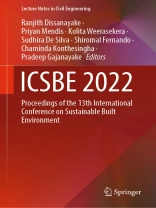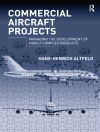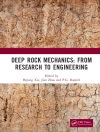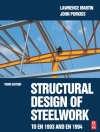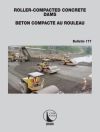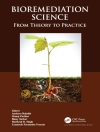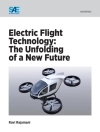This book highlights the latest knowledge and innovations in the fields of civil engineering and construction industry striving for a sustainable built environment. It consists of high quality and innovative research findings selected from the proceedings of the 13th ICSBE 2022 under the themes of sustainable construction, urban green infrastructure and planning, rainwater harvesting and water conservation, high-performance concrete, indoor environmental quality and indoor plants, wind and hydro-power energy, waste and wastewater management for enhanced sustainability, impacts of climate change, carbon footprint, global climate model and landscaping, material flows and industrial ecology, sustainable materials, etc.
Daftar Isi
Effect of live load increment of old steel railway bridges in Sri Lanka.- Use of Markov chain method to predict service life of reinforced concrete bridge decks.- Thin-walled hollow steel box piers with energy dissipation mechanism under bi-directional cyclic loading.- Damage prediction by using nonlinearity of damping.- Effects of refined coconut oil and vegetable oil on the mechanical, thermal, morphological, and biodegradable properties of cassava starch-based thermoplastic (tps) films.- Batch adsorption study for the removal of textile dyes from aqueous solutions using pandanus amaryllifolius (rampe) leaves.- Tea waste bio-char as an absorbent for the removal of pb(ii) in the industrial wastewater.- Mechanical recycling and valorisation of disposable face masks: a potential solution to the covid-19 waste issue.- Assessment of dispersion potential of discarded coconut fibres in concrete pavements.- Evaluation of thermal conductivity of concrete using finite element analysis.- Effect of carbonation on microstructure of cement pastes with different water-to-cement ratios.- Development of lightweight aggregate concrete with locally available lightweight materials.- Assessment of heat of hydration of high-strength concrete.- Critical selection factors for contractors to make bid/ no-bid decision in construction projects in Sri Lanka.- Cost control techniques on the delivery of sustainable construction projects in Sri Lanka.
Tentang Penulis
Ranjith Dissanayake is Senior Professor in Civil Engineering, University of Peradeniya, Sri Lanka, who is also currently serving the country as Secretary for the State Ministry of Rural Roads and Other Infrastructures. He is Chairman of the Green Building Council of Sri Lanka (GBCSL) and Vice President of the Institution of Engineers, Sri Lanka (IESL). In private sector, he is Chairman for Lego International (Pvt.) Ltd., ICB (Pvt.) Ltd., Lanka AAC (Pvt.) Ltd., and GAP (Pvt.) Ltd. Prof. Dissanayake was Fulbright Scholar in USA, Endeavor Fellow in Australia, and JASSO Research Fellow in Japan while being awarded the Young Scientist Award in 2007 by the NSTC of Sri Lanka who also has published over 100 journal papers so far.
Priyan Mendis is Senior Professor in Civil Engineering, University of Melbourne, Australia, who also serves as Director of the ARC Centre for Advanced Manufacturing of Prefabricated Modular Housing (ARC CAMP.H) and Leader of the Advanced Protective Technology of Engineering Structures Group, Australia. He is Leading Expert in innovative construction methods such as prefabricated structures, tall buildings, and advanced sustainable construction materials. Prof. Mendis is Honorary Chairman of Civil and Structural Engineering Consultants (Pvt.) Ltd. and Founding Chairman of Green Building Council of Sri Lanka (GBCSL) while being Member of many global civil engineering bodies.
Kolita Weerasekera is Senior Professor and Chair of Department of Civil Engineering, Open University of Sri Lanka, who is also Chartered Engineer, International Professional Engineer, Fellow of the Institution of Engineers Sri Lanka, Member of Institution of Engineers Australia, American Society of Civil Engineers, and Institution of Highways and Transport, UK. As Transport Engineering Expert, he has authored two text books on highway and traffic engineering: “Towards Better Roads” and “An Introduction to Traffic Engineering”while publishing over 100 journal and conference papers while winning few awards for his excellency in research.
Sudhira De Silva is Professor in Civil and Environmental Engineering, University of Ruhuna, Sri Lanka, while being Member of Institution of Engineers Sri Lanka (IESL), Society of Structural Engineers Sri Lanka, and Japan Concrete Institute. He has been Conference Co-chairs, Scientific Committee Chairs, and Member of review panels in many national and international conferences while publishing over 100 journal and conference papers in his specialist areas of high strength and high-performance concrete, bridge management systems for RC and PC bridges, structural assessment, durability of reinforced concrete and pre-stressed concrete structures, and sustainable building materials.
Shiromal Fernando is Managing Director as well as Principal Structural Engineer of Civil and Structural Engineering Consultants (Pvt.) Ltd., Sri Lanka, which is one of the leading consultancy companies in Sri Lanka. He is well-experienced Charted Engineer in Sri Lanka while also being Chairman of Council on Tall Buildings and Urban Habitat, Sri Lanka, Vice President of Green Building Council of Sri Lanka (GBCSL), and Member of Institution of Engineers Sri Lanka (IESL), Sri Lankan Standard Institute (SLS), and Society of Structural Engineers, Sri Lanka. Eng. Fernando is Leading Expert in Innovative construction methods such as tall buildings, bridge construction, and advanced sustainable construction materials.
Chaminda Konthesingha is Professor at Department of Civil Engineering, University of Sri Jayewardenepura, Sri Lanka, who is also currently serving as Dean of Faculty of Engineering in the same university. His research interests are based on structural engineering and modular construction where he has managed to publish many journal and conference papers in these areas. He has obtained his bachelor’s and master’s degrees in Civil Engineering from University of Moratuwa and Ph.D. from Newcastle University, UK. He is also Member of Institution of Engineers Sri Lanka (IESL) and Society of Structural Engineers Sri Lanka.
Pradeep Gajanayake is Senior Lecturer at Department of Biosystems Technology, Faculty of Technology, University of Sri Jayewardenepura, Sri Lanka. His research interests are based on waste management and wastewater treatment where he has managed to publish many journal and conference papers in these areas. He has obtained his bachelor’s and M.Phil. degrees in Agricultural Engineering from University of Peradeniya and Ph.D. in Environmental Engineering from Saitama University, Japan.
